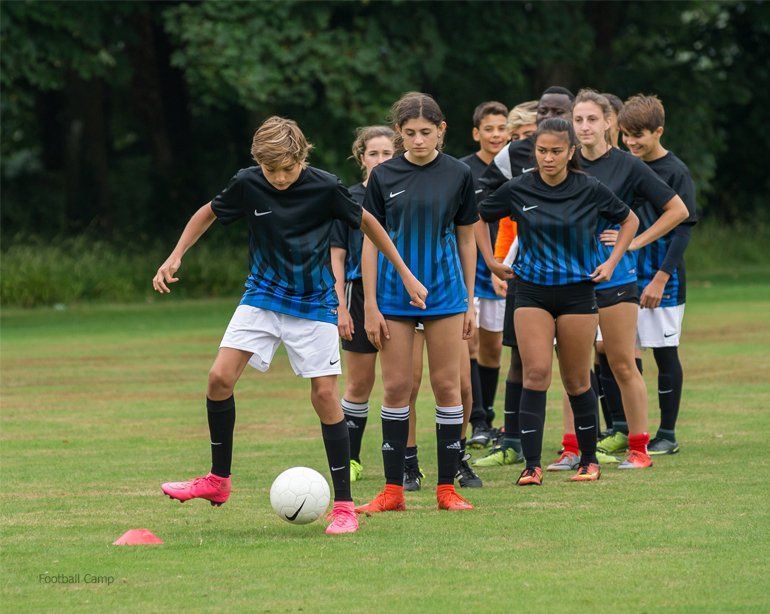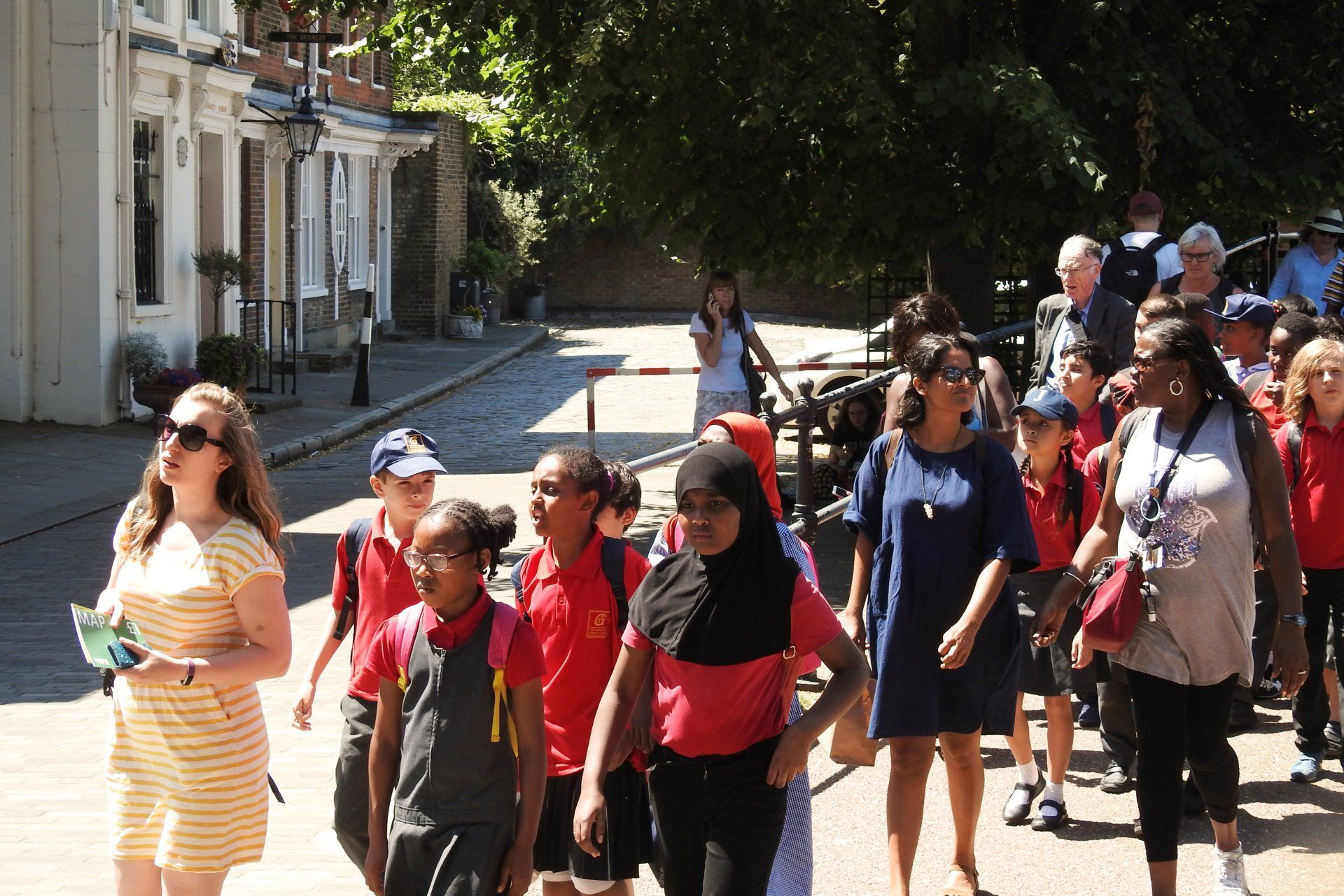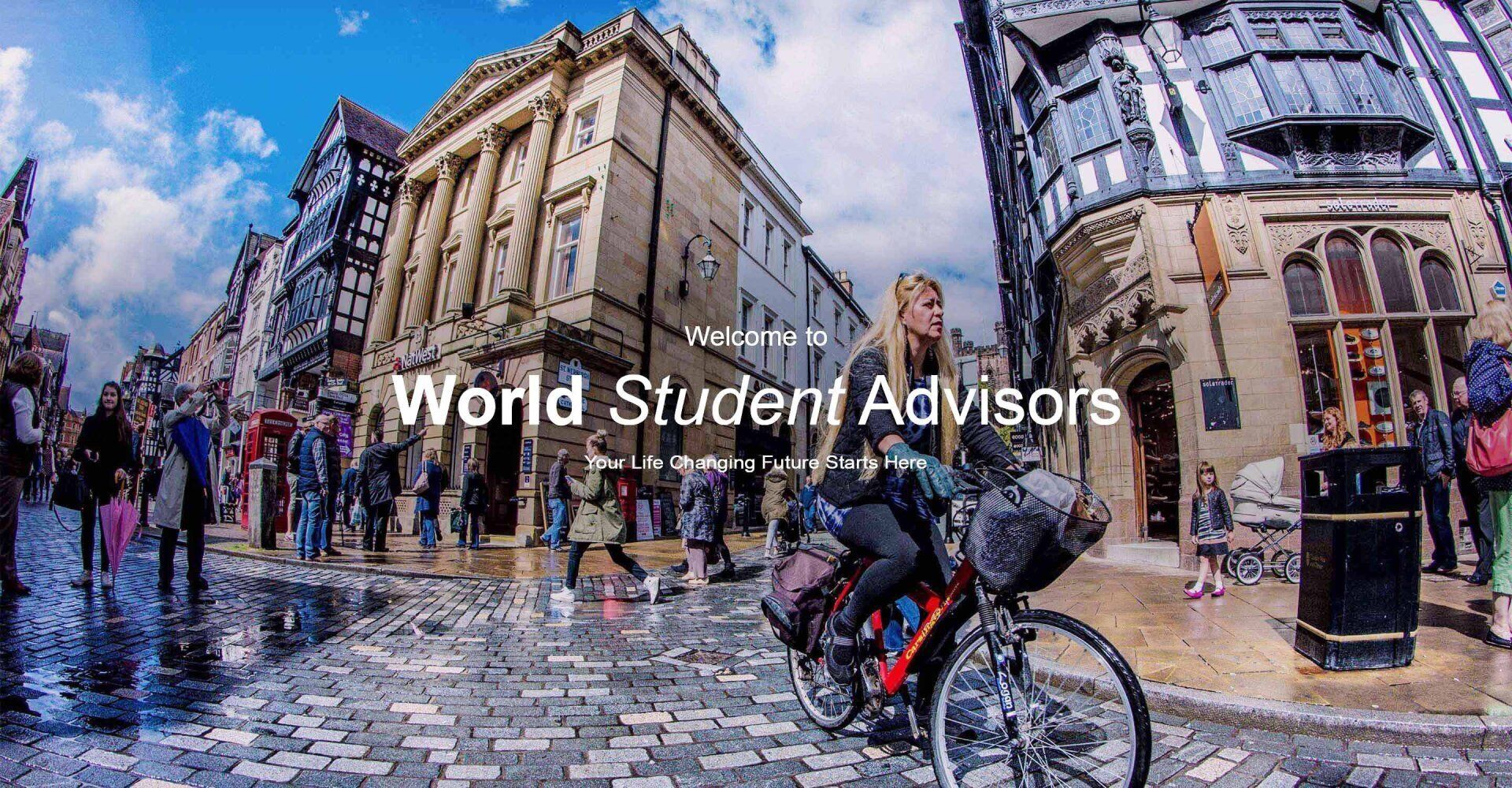The visa system in the UK has changed
Step-by-step information for child and over 18 year old
UK visa application and renewal
Child Student visa
Child Student Visa under 18: this visa has replaced the Tier 4 (Child) student visa.
One of the main advantages of UK boarding schools is that a Child Student can now have a visa for the whole time they are studying, not just for the length of their programme, making it easier for us all.
Please have a look at the
live link for up-to-date information.
Child Student visa
- Overview
You can apply for a Child Student visa if you’re between 4 and 17 years old and want to study at an independent school in the UK.
You must:
• have a Confirmation of Acceptance for Studies of a place on a course at an independent school
• be able to show you’ll have access to enough money to support you in the UK and pay for your course
• have the consent of your parent or guardian to study in the UK - you’ll need to prove this when you apply
If you’re 18 or over, apply for a
Student visa instead.
If you’re from the EU, Switzerland, Norway, Iceland or Liechtenstein
If you’re from the EU, Switzerland, Norway, Iceland or Liechtenstein and you started living in the UK on or before 31 December 2020, you can apply to the EU Settlement Scheme.
If you’re coming to the UK from 1 January this year, you’ll need to apply for a visa to study in the UK.
Your Child's Student visa will start on 1 January of this year.
When to apply
When you can apply depends on whether you’re applying from inside or outside the UK.
Applying from outside the UK
The earliest you can apply for a visa is six months before you start your course.
You’ll usually get a decision within three weeks.
Applying from inside the UK
The earliest you can apply is three months before your course starts.
You must apply before your current visa expires. Your new course must begin within 28 days of your current visa expiring.
You’ll usually get a decision within eight weeks.
How long you can stay
How long you can stay depends on the date you started and the course length.
Age when you apply How long you can stay
Under 16 Course length (upto 6 years 4 months afterwards
16 or 17 Course length (up to 3 years) plus four months afterwards
When you can travel to the UK
You can arrive in the UK up to 1 month before your course starts.
Staying longer in the UK
You may be able to:
• extend your visa if you’re eligible, for example to continue your studies in the UK
• switch to a Child Student visa from another visa if you’re already in the UK
Visa application costs
• *£490 apply for a Child Student visa from outside the UK
• *£490 to extend or switch to a Child Student visa from inside the UK
You’ll also have to pay the healthcare surcharge as part of your application.
*Check how much you’ll have to pay before you apply.
What you can and cannot do
You can study at an independent school.
If you’re 16 or over, you can work:
• part-time during term for up to 10 hours per week
• full-time during vacations
• on a work placement as part of your course (but not for more than 50% of your course)
You cannot:
• study at an academy or a local authority-funded school (also known as a maintained school) or further or higher education institution
• get public funds (benefits)
• take a full-time permanent job or be self-employed
• work as a professional sportsperson (for example, a sports coach) or entertainer
• apply for settlement
• bring family members (‘dependants’) - if a parent wants to accompany you, they’ll need to apply for a Parent of a Child Student visa
If your application is successful, you’ll get a complete list of what you can and cannot do with a Child Student visa.
2. Your course
You must have an unconditional offer of a place on a course with a
licensed Child Student sponsor.
To prove this, your education provider will send you a reference number (a Confirmation of Acceptance for Studies (CAS)) once they’ve offered you a place on the course. It would be best if you had to do a CAS before you can apply for your visa.
Courses you can study
You can do a course at an independent school that’s taught in line with one of the following:
• the national curriculum
• the Regulated Qualifications Framework (RQF) at level 3 or below
•
independent school education inspection standards
You can also do a course that’s accepted as being at the same academic level by:
•
Office for Standards in Education (Ofsted)
• Education and Training Inspectorate (in Northern Ireland)
You can do a short ‘pre-sessional’ course to prepare you for your main course.
You can study for a foundation course that will prepare you for direct entry to a higher education institution.
Your Confirmation of Acceptance for Studies (CAS)
Once your education provider has offered you a place on a course, they’ll send you a reference number called a Confirmation of Acceptance for Studies (CAS).
You’ll need to enter this reference number on your visa application.
Your CAS can cover both the pre-sessional and primary course of study.
You must apply for your visa within six months of receiving your CAS.
3. Money you need
You must have enough money to pay for your course and support you in the UK.
How much money you need depends on where you live and who will look after you.
If you’ll live with your parent or guardian
Your parent must have a Parent of a Child Student visa to accompany you to the UK. If you’re over 12, your parent will not be eligible unless you have a younger sibling who’s under 12 and has a Child Student visa.
You must have enough money to pay your course fees for one academic year (up to 9 months).
You’ll also need £1,560 per month (for up to 9 months) - this amount is for both you and your parent.
Your parent will need an extra £625 a month (for up to 9 months) for each additional child they accompany to the UK. The child must be your sibling and have a Child Student visa.
Please read the guidance to determine how much money you need and how to prove it.
You must prove you (or your parent) have the money for at least 28 consecutive days. The end date of the 28 days must be within 31 days of the date you apply for your visa.
If you have a student loan or financial sponsorship, you’ll need to provide evidence of this from your loan or sponsorship company.
When you do not need to prove you have money to support yourself
You do not need to prove you have money to keep yourself if you’ve had a valid UK visa for at least 12 months immediately before your Child Student visa application date - you must currently be in the UK.
If you’re from a country listed under the ‘differential evidence requirement.’
You do not need to prove you have enough money to support yourself if you’re a
British national overseas or from one of the following countries or territories:
• Australia
• Austria
• Bahrain
• Barbados
• Belgium
• Botswana
• Brazil
• Brunei
• Bulgaria
• Cambodia
• Canada
• Chile
• China
• Croatia
• Republic of Cyprus
• Czech Republic
• Denmark
• The Dominican Republic
• Estonia
• Finland
• France
• Germany
• Greece
• Hong Kong
• Hungary
• Iceland
• Indonesia
• Ireland
• Italy
• Japan
• Kazakhstan
• Kuwait
• Latvia
• Liechtenstein
• Lithuania
• Luxembourg
• Macao
• Malaysia
• Malta
• Mauritius
• Mexico
• Netherlands
• New Zealand
• Norway
• Oman
• Peru
• Poland
• Portugal
• Qatar
• Romania
• Serbia
• Singapore
• Slovakia
• Slovenia
• South Korea
• Spain
• Sweden
• Switzerland
• Taiwan
• Thailand
• Tunisia
• United Arab Emirates
• United States of America
However, you might be asked to provide this evidence before you decide on your application.
If you do need to provide it, you’ll be contacted by UK Visas and Immigration (UKVI) after you’ve submitted your application.
Please read the guidance to determine how much money you need and how to prove it.
4. Documents you'll need to apply
When you apply for your Child's Student visa, you must provide the following:
• a current passport or other valid travel documentation
• a Confirmation of Acceptance for Studies (CAS) from your course provider
• written consent from your parent or legal guardian for your study in the UK
You may also need to provide:
• proof that you have enough money to support yourself and pay for your course - this will vary depending on your circumstances
• proof of your relationship to your parent or guardian (for example, a birth certificate or other government-issued document showing their names)
• evidence of the qualifications you used to get a place on your course - if your course provider required this, if you have any
• your tuberculosis (TB) test results
• written consent for your application from your financial sponsor if you’ve received sponsorship for your course fees and living costs in the last 12 months
You may need to provide additional documents if you have any. Read the guidance for the complete list of documents you’ll need to provide.
You need a blank page in your passport for your visa if you need to give your biometric information (fingerprints and a photograph) at a visa application centre. You’ll be told if you need to do this when you apply.
Parental consent
You must have written consent from both parents (or one parent if they have sole responsibility) or a legal guardian. This must confirm they consent to the following:
• your visa application
• your living arrangements and care in the UK
• your travel to the UK
You'll need to provide additional evidence if you’re living with a close relative or foster carer. Read the guidance for the complete list of documents you’ll need to provide.
5. Apply
You must apply online for a Child Student visa.
Check which documents you’ll need to apply.
Apply outside the UK
As part of your application, you’ll need to prove your identity. How you do this depends on where you’re from and your passport type.
You’ll either:
• have your fingerprints and photograph taken at a visa application centre
• use the ‘UK Immigration: ID Check’ app to scan your identity document (you’ll also create or sign into your UK Visas and Immigration account)
You’ll be told what you need to do when you apply.
Once you’ve started your application, you can save and complete your form later.
How long it takes to get a decision
You’ll usually get a decision within three weeks.
. Could you check if your visa application centre offers faster decisions and other services?
Apply inside the UK
You may be able to apply to:
• extend your Child's Student visa
•
switch to a Child Student visa from another type of visa
After you apply
You’ll be contacted if your application is complex and will take longer, for example, because:
• your supporting documents need to be verified
• you need to attend an interview (if you’re 16 or 17)
• of your circumstances (for example, if you have a criminal conviction)
If you need to change something in your application after you’ve sent it, contact UK Visas and Immigration (UKVI).
Please feel free to ask to withdraw your application by contacting UKVI. Your fee will only be refunded if UKVI has not started processing your application.
After you get a decision
If your application is successful, you’ll get either:
• a biometric residence permit - if you gave your biometric information at a visa application centre
• a
digital immigration status which you can view and prove online - if you used the ‘UK Immigration: ID Check’ app
Could you find out what happens after you make your decision?
6. Extend your visa
You can apply to extend your Child Student visa to stay longer in the UK. This includes if you currently have a Tier 4 (Child) student visa.
To extend your visa, you must:
• be in the UK on a Child Student visa (or a Tier 4 (Child) student visa)
• have an unconditional offer of a place on a course with a licensed Child Student sponsor - shown by your Confirmation of Acceptance for Studies (CAS)
If you’ve been in the UK with a valid visa for less than 12 months, you’ll need to prove you have enough money to support yourself.
When to apply
The earliest you can apply is three months before your course starts.
You must apply before your current visa expires. Your new course must begin within 28 days of your current visa expiring.
For example, if your visa expires on 1 December, you must apply for a new visa before 1 December. Your new course must begin by 29 December.
You must apply within six months of getting a Confirmation of Acceptance for Studies (CAS).
You can stay in the UK until you get your decision.
If you applied for an administrative review because your application was refused, you can stay in the UK until your review decision.
Fees you’ll need to pay:
• £475 to extend this visa
• the healthcare surcharge - check how much you’ll have to pay
You may need to pay £19.20 to have your biometric information (fingerprints and a photo) taken.
Apply
You'll need to apply online.
As part of your application, you’ll need to prove your identity.
How you do this depends on where you’re from and your passport type.
You’ll either:
• give your fingerprints and a photograph (biometric information) at a UKVisa and Citizenship Application Services (UKVCAS) service point
• use the ‘UK Immigration: ID Check’ app to scan your identity document (you will also create or sign in to your UK Visas and Immigration account)
You’ll be told what you need to do when you apply.
You must only travel outside the UK, Ireland, the Channel Islands or the Isle of Man once you decide. Your application will be withdrawn if you do.
How long it takes to get a decision
A decision will usually be made within eight weeks.
You may be able to pay,
After you apply
You’ll be contacted if your application is complex and will take longer, for example because:
• your supporting documents need to be verified
• you need to attend an interview (if you’re 16 or 17)
• of your circumstances (for example, if you have a criminal conviction)
If you need to change something in your application after you’ve sent it, contact UK Visas and Immigration (UKVI).
Please feel free to ask to withdraw your application by contacting UKVI. Your fee will only be refunded if UKVI has not started processing your application.
If your application is successful
If your application is successful, you’ll get either:
• a
biometric residence permit - if you gave your biometric information at a UKVCAS centre
• a digital immigration status which you can view and prove online - if you used the ‘UK Immigration: ID Check’ app
7. Switch to this visa
You may be able to change (‘switch’) to a Child Student visa from another visa. You must be between 4 and 17 years old.
You cannot switch to a Child Student visa if you have one of the following:
• a visitor visa
• a short-term student visa
• leave outside the immigration rules
You do not need to apply for a visa if you have settled or pre-settled status under the EU Settlement Scheme.
Eligibility
To switch to a Child Student visa, you must:
• be in the UK
• be between 4 and 17 years old
• have an unconditional offer of a place on a course with a licensed Child Student sponsor - show by your Confirmation of Acceptance for Studies (CAS)
If you’ve been in the UK with a valid visa for less than 12 months, you’ll need to
prove you have enough money to support yourself.
When to apply
The earliest you can apply is three months before your course starts.
You must apply before your current visa expires. Your new course must begin within 28 days of your current visa expiring.
For example, if your visa expires on 1 December, you must apply for a new visa before 1 December. Your new course must begin by 29 December.
You must apply within six months of getting a Confirmation of Acceptance for Studies (CAS).
You can stay in the UK until you get your decision.
If you applied for an administrative review because your application was refused, you can stay in the UK until your review decision.
Fees you'll need to pay:
• £475 to switch to this visa
• the healthcare surcharge - check how much you’ll have to pay
You may need to pay £19.20 to have your biometric information (fingerprints and a photo) taken.
Apply
You'l apply online.
As part of your application, you’ll need to prove your identity.
How you do this depends on where you’re from and your passport type.
You’ll either:
• give your fingerprints and a photograph (biometric information) at a UK Visa and Citizenship Application Services (UKVCAS) service point
• use the ‘UK Immigration: ID Check’ app to scan your identity document (you will also create or sign in to your UK Visas and Immigration account)
You’ll be told what you need to do when you apply.
You must not travel outside the UK, Ireland, the Channel Islands or the Isle of Man until you decide. Your application will be withdrawn if you do.
How long it takes to get a decision
A decision will usually be made within eight weeks.
You may be able to pay,
After you apply
You’ll be contacted if your application is complex and will take longer, for example because:
• your supporting documents need to be verified
• you need to attend an interview (if you’re 16 or 17)
• of your circumstances (for example, if you have a criminal conviction)
If you need to change something in your application after you’ve sent it,
contact UK Visas and Immigration (UKVI).
Please feel free to ask to withdraw your application by contacting UKVI. Your fee will only be refunded if UKVI has not started processing your application.
If your application is successful
If your application is successful, you’ll get either:
• a biometric residence permit - if you gave your biometric information at a UKVCAS centre
• a digital immigration status which you can view and prove online - if you used the ‘UK Immigration: ID Check’ app







